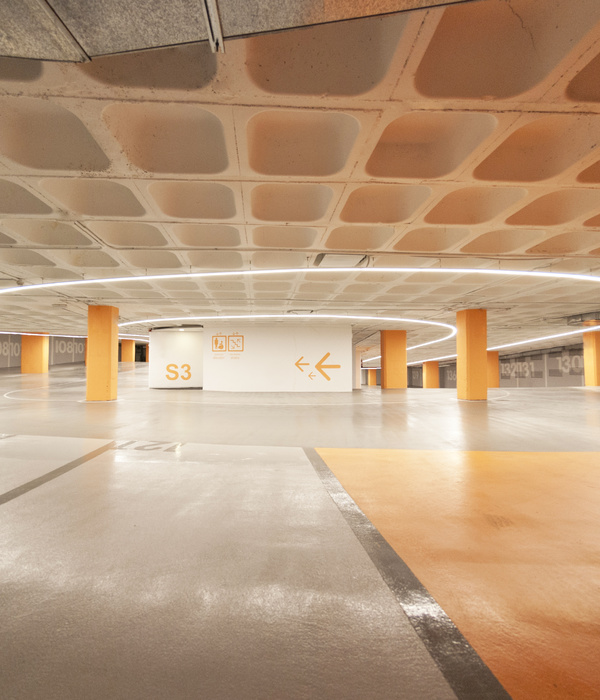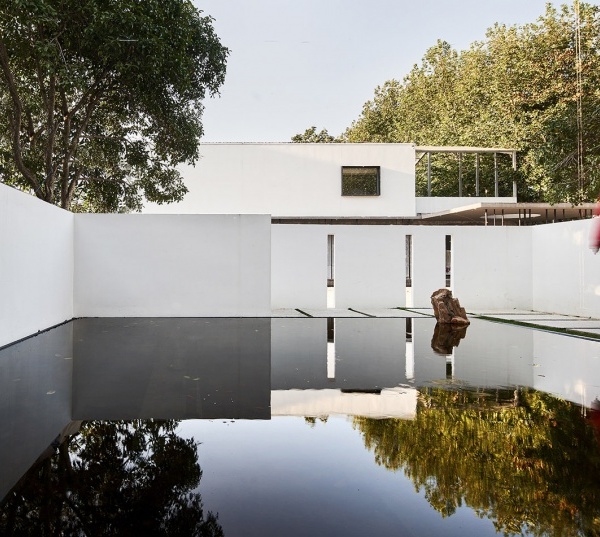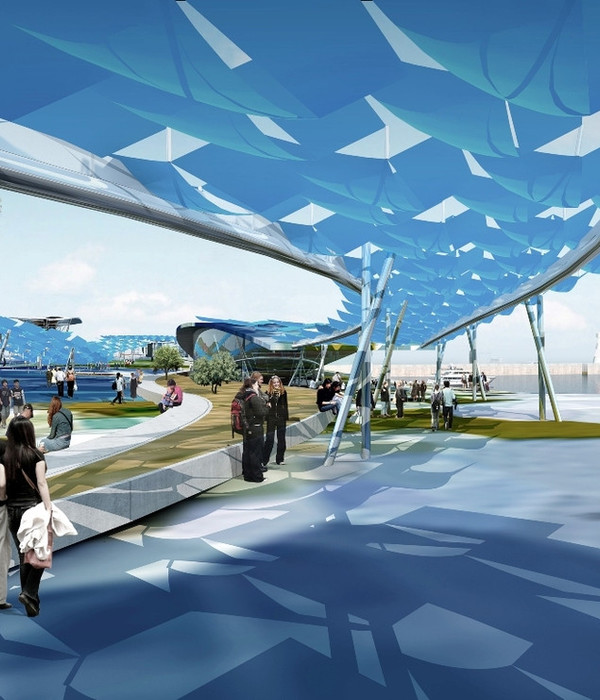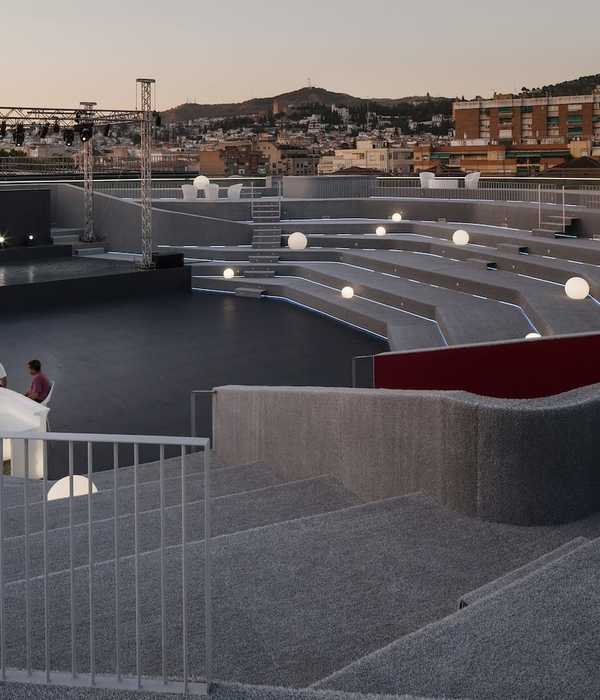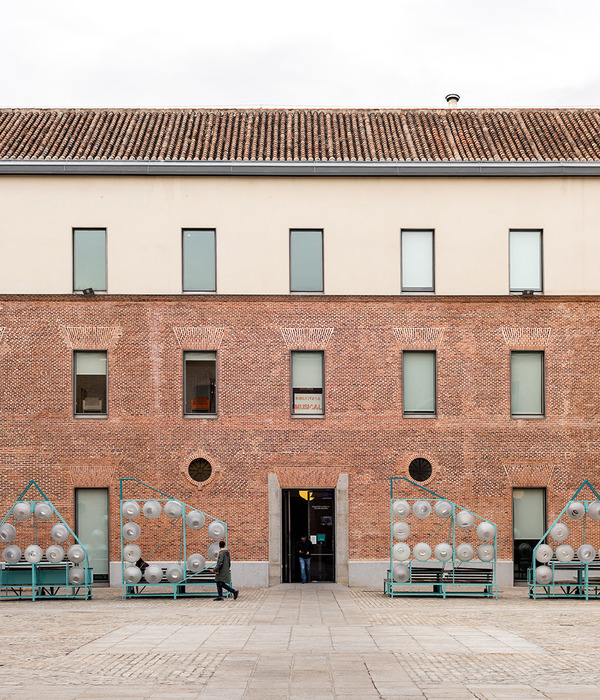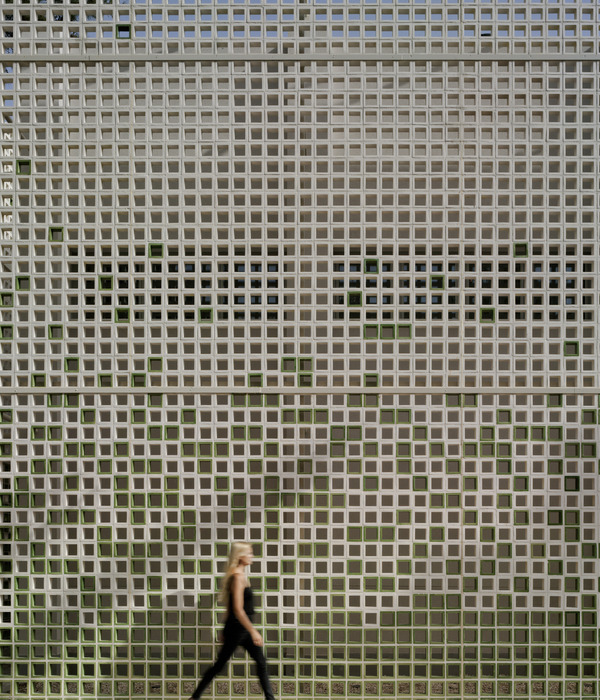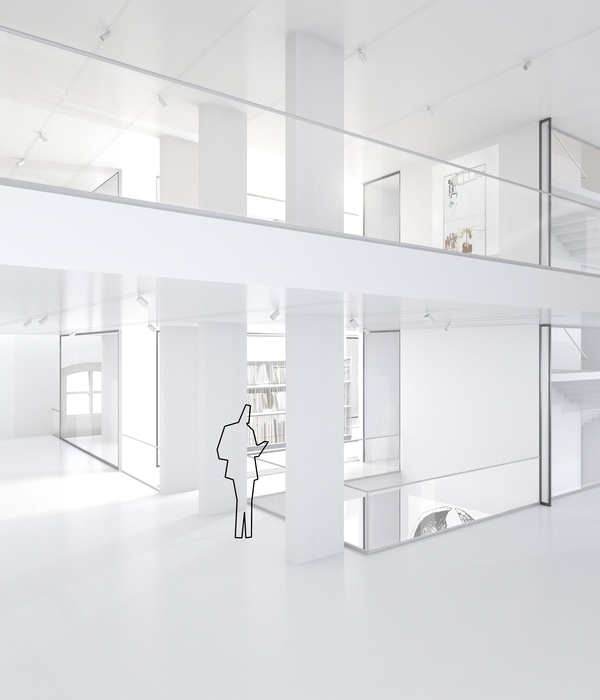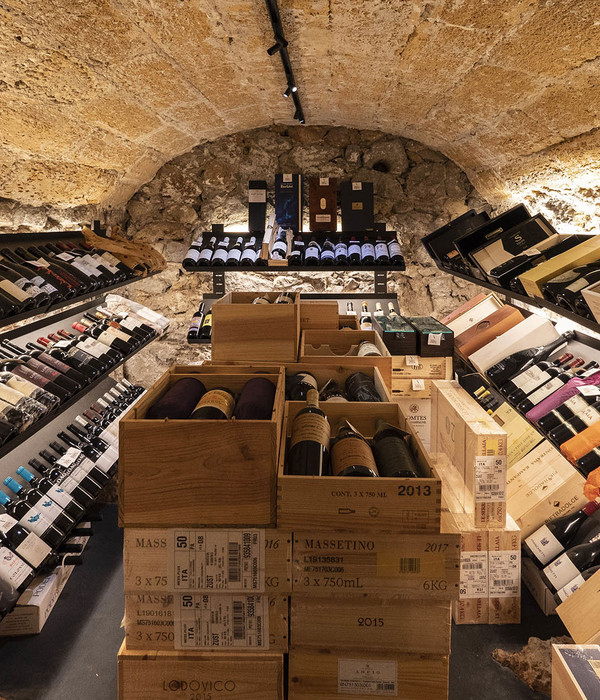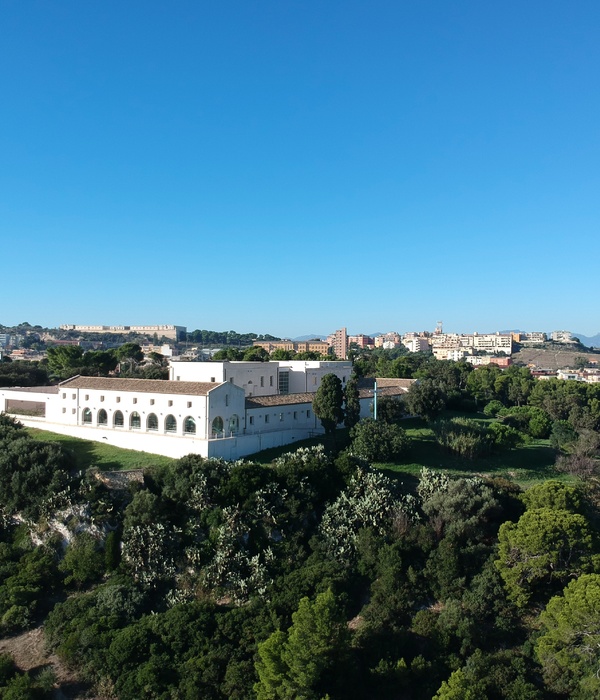Video still, Cambio visual essay, 2020, courtesy Formafantasma. Portraits of Formafantasma’s Andrea Trimarchi and Simone Farresin (pictured with their dog, Terra) shot by Brigitte Lacombe over Zoom in August 2020, for Design Emergency’s guest editor takeover of Wallpaper*
WINNER
Formafantasma’s Andrea Trimarchi and Simone Farresin embody what design means today. Since founding their studio in 2009, the Amsterdam-based duo have brought together exquisite forms, unusual materials (among them plant-based polymers, volcanic ash and electronic waste), analytical thinking, and a conviction that design is a redemptive and revolutionary force, one that points us towards more responsible citizenship and a better world. As their longtime collaborator, gallerist Libby Sellers tells us, ’they balance value-laden advocacy with extreme elegance and wit’.
Their Cambio project, presented as an exhibition at London’s Serpentine Galleries in 2020, became one of the year’s most impactful cultural events. It explores the global impact of the timber industry through research, installation and film; its exhibits ranging from a video essay that considers humans from the point of view of trees, with voiceover written by philosopher and botanist Emanuele Coccia, to a totem pole of Ikea stools, recreated in different kinds of wood and arranged in order of environmental footprint, all emphasising design’s political and ecological responsibilities. ‘It’s an invitation to start to think about what we do on the planet as a shared experience,’ they say.
Beyond its urgent message, Cambio also stood out for its unique exhibition design, involving custom furniture pieces – tables, stools, bookshelves and desks – from the wood of a single pine tree in Italy’s Val di Fiemme, which had fallen in 2018 in a storm caused by climate change. It was the culmination of Formafantasma’s many years of experimentation with temporary installations, including a retrospective on architect Pier Luigi Nervi for Rome’s MAXXI Museum in 2019, and a Caravaggio and Bernini exhibition at Amsterdam’s Rijksmuseum last spring (more recently, they designed the 125th anniversary exhibition of the Venice Biennale). In each instance, they develop a long-term view of their project’s timeframe, considering the origins and afterlife of their materials and how to involve the local community – a game-changing approach that others would be wise to follow.
It is fitting that Trimarchi and Farresin are heading up the new GEO-Design master’s programme at Design Academy Eindhoven, where they graduated in 2009. The programme investigates the social, economic, territorial and geopolitical forces that shape the practice of design, with the aim of educating the next generation to look beyond products and transform broader ecosystems. As Design Emergency’s Paola Antonelli wrote in our October 2020 issue, ‘Formafantasma hopes to populate the world with designers who have committed to using their métier to dismantle systems of oppression and exploitation of humans and other species and natural resources. In other words, to be engaged activists.’ It’s a proposition that meets the moment, and is sure to shape the industry in years to come.
SHORTLIST
These are the designers who have inspired us over the past year: innovators and educators, able to adapt to our rapidly changing world. They are outspoken about the role of design in contemporary society, and how it can improve every aspect of our lives.
Yinka Ilori
As the pandemic took over the world in Spring 2020, a series of colourfully hopeful messages – including ‘Better days are coming I promise’ and ‘As long as we have each other we’ll be ok’ – hit every corner of social media. Created by the British-Nigerian designer Yinka Ilori, they were commissioned by the NHS and displayed at different London locations to help foster a sense of optimism during a challenging time. Throughout the year, Ilori has applied his bright signature palette to a skate park near Lille, France; a series of windows for London’s Selfridges; and a cross-shaped chair-bench in collaboration with Kvadrat Febrik. He is also in the process of launching his own homeware and accessories brand. This summer, Ilori spoke out about his experience in the design industry, becoming an important voice within the global debate surrounding the Black Lives Matter movement. ‘I know so many POC who studied with me, and who decided they were not going to pursue what they studied because they felt the industry wasn’t diverse enough and they wouldn’t be accepted,’ he said. ‘There are only a few good people in the design industry who believe that diversity is still a huge problem today, while the others continue to pretend there isn’t a problem.’
David/Nicolas
David Raffoul and Nicolas Moussallem have been successfully merging Middle Eastern and European influences since the launch of their studio in 2011. Based between Beirut and Milan, the pair have developed a ‘retro-futuristic’ aesthetic, with inspirations ranging from architectural history to astronomy, and to the music of Daft Punk. Having been the subject of solo shows at Carpenters Workshop Gallery’s Paris and New York locations in 2018-2019, the studio continues its meteoric rise with new projects this year including ‘Verso’, a new furniture concept for Maison Pierre Frey designed as an homage to French designer René Prou; a beautifully textured low table for Italian furniture maker Gallotti e Radice; marble surfaces for Delsavio 1910; rugs for CC Tapis; as well as furniture and installations for private clients. All feature the duo’s signature geometric patterns, line work and refined aesthetic. In August, the explosions at Beirut’s port severely damaged their Pharaon Street studio, but the designers have been outspoken about their desire to stay in the city and support its rebuild through the design community through personal and collective projects.
Vincent Van Duysen
Of all the designers on our radar, Vincent Van Duysen is among those that have best adapted to what we now call the new normal, working on digital and virtual platforms to bring his work to life. He has taken this concept to the next level through his collaboration with Molteni&C: serving as the company’s creative director, he has worked closely with the team on projects that include an immersive virtual showroom experience and a newly-launched e-commerce site, as well as his usually sleek furniture and kitchen designs. He has also created new pieces for the Italian lighting brand Flos, such as the ‘Oblique’ desk lights, perfect for the home office and, thanks to their cordless portability, particularly suitable for a versatile environment. In addition to furniture and product, his studio has continued working on private commissions, for residential and retail projects from Bangkok to the Portuguese coast to, perhaps most notably, the suburbs of Los Angeles (for clients Kim Kardashian and Kanye West, in collaboration with Axel Vervoordt).
Ilse Crawford
Ilse Crawford’s humanist approach to design came particularly handy this year, when the world was craving connection, intimacy and nurturing. Each fostering comfort and a sense of domestic peace, her recent projects include a lamp for Wästberg; the redesign of Aino and Alvar Aalto’s iconic Savoy in collaboration with Artek; and a series of textiles for Nanimarquina that were carefully conceived to respect both the environment and the people producing them (the range comprises wall hangings and a hammock, Crawford’s own favourite design object). ‘We are at a time when healing and bringing society together to alleviate hardship is critical,’ she said in a recent interview with Alice Rawsthorn, as part of the Design Emergency Instagram Live series. To the point, one of her most recent interior design projects was the Anna Freud National Centre for Children and Families, created for a London-based children’s mental health charity and featuring simple and durable materials and subtle colours, showing how design can be a tool of reassurance and dignity.
{{item.text_origin}}


